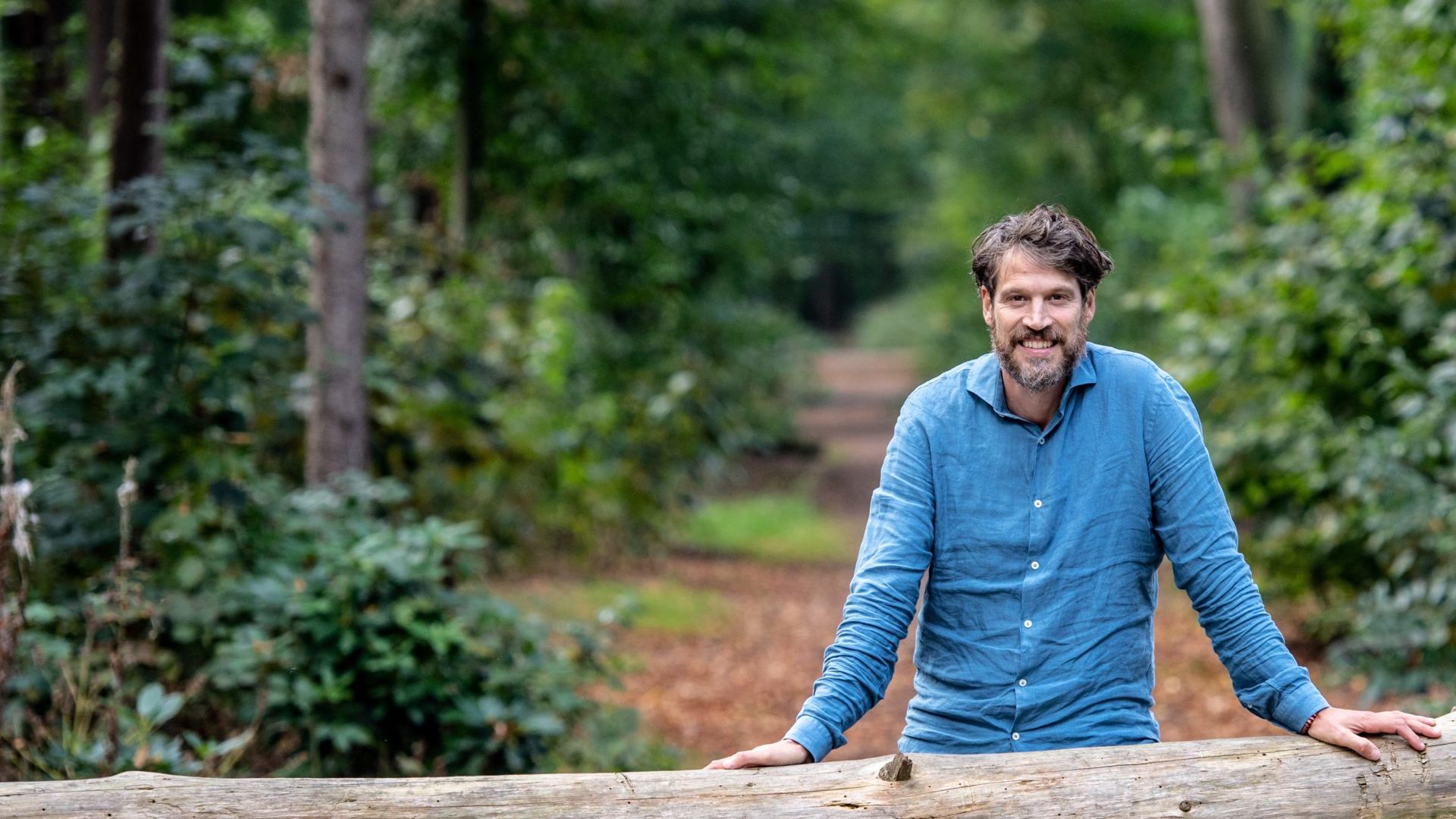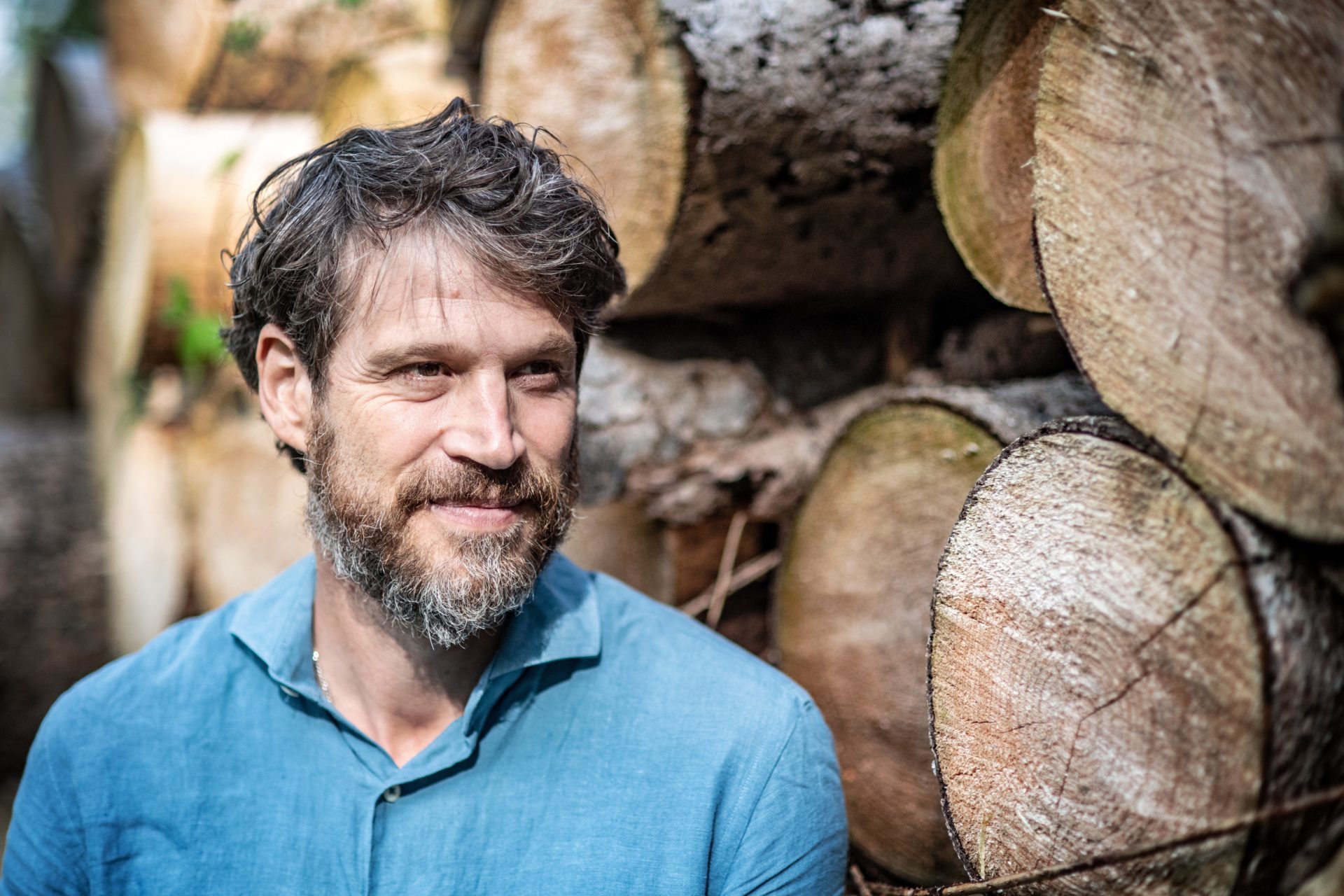‘Please don’t call me the Mindful Professor’
-
 Johan Karremans. Foto: Bert Beelen
Johan Karremans. Foto: Bert Beelen
Johan Karremans is professor and mindfulness trainer. These are not two separate roles. As an expert in the field of relationships, Karremans wants to investigate how mindfulness can contribute to strengthening a relationship.
Johan Karremans was recently forced to conclude once again that not everyone is taking mindfulness seriously. A fellow researcher – a philosopher to be precise – noted in an article that the last thing stressed people should do is sit on a silly cushion and meditate. His advice: Go for a good run instead. ‘When I read things like this, I think: Maybe you should first try and find out why mindfulness is so popular. Clearly, some people find it helpful.’
As a mindfulness practitioner himself, Karremans knows what he’s talking about. For the past few years, he has offered courses in this meditation form, for example to Radboud University PhD students, a demographic all too familiar with stress.
‘When you’re on the cushion, there’s no escape’
He combines it with his work as a social psychologist, a field in which he was appointed professor last month. His specialisation: social relationships. The media usually contact him to ask questions like: What makes for a good relationship? How do you keep your relationship exciting? Are people monogamous by nature?
These two roles – of researcher and mindfulness trainer – are not separate. Karremans: ‘Mindfulness is often claimed to help with all sorts of things, including improving the quality of relationships. But is this really true? This is what I want to find out. A few years ago, I carried out a thorough literature study and concluded that we know very little about the effect of mindfulness on relationships. I’ve been studying this topic ever since.’
How did you first come into contact with mindfulness?
‘It’s a classic story. In 2005, I was travelling with my wife through India. We saw a sign: 3-day meditation retreat. We enrolled out of pure curiosity. In a way it was awful – when you’re sitting on the cushion, you’re stuck with the thoughts in your mind, and there’s no escape. But it did something to me. After the retreat, I noticed that I was reacting less strongly to stimuli. I’ve been meditating ever since – sometimes more often than other times. In 2010 I completed a mindfulness programme.’
What does science know so far about the effects of mindfulness?
‘This field of research is still very young, which is why I’m careful with drawing conclusions. Let’s put it this way: there are indications that mindfulness helps, for example to reduce brooding. Mindfulness teaches people to recognise and accept their emotions. The idea that this leads to a stress-free life is a myth. What it does is teach people to respond to stress differently.’
‘So far, research on mindfulness has focused mostly on the clinical aspect: how can we use mindfulness to combat depression, anxiety and stress? It’s very much focused on the individual. I’m more interested in the question: If I become more mindful, how will this affect my partner and other relationships?’
How can you study this?
‘So far the effects have primarily been studied with surveys among people who are following a mindfulness programme. Their answers are then compared to those of a control group who are doing something else, like regular relaxation exercises. It’s interesting to see that these studies are showing certain effects. But for me, these results will only become convincing once we can also observe differences in behaviour. This is what I hope to do in the coming years. For example, by inviting couples into the lab and asking them to have a fight.’
That sounds like a strange experiment.
‘You can pick a subject of controversy, for example how household tasks are divided, and ask people to talk about it. You can then check whether people who practice mindfulness are better listeners. Or whether they’re more conscious of the other person’s needs. If you then also observe differences in physiological response, I will be truly convinced. Does the blood pressure and heart rate of mindfulness practitioners remain more stable?’
What if your study shows that mindfulness doesn’t work at all?
‘This is something I struggle with quite a lot. Personally, I believe that I benefit from mindfulness. If my data show that it doesn’t work, I won’t just stop. I’ll continue to practice mindfulness because I believe that it helps me. This is my subjective experience, which doesn’t mean it’ll be confirmed by my data. At the same time, I also know that one study isn’t enough to draw conclusions. You have to carry out systematic studies over a longer period of time.’
How do you think mindfulness can help improve a relationship?
‘Mindfulness is about paying attention to what is happening right now. Every aspect of a relationship requires attention. Sex is the easiest example, but it applies equally to how couples communicate. If you’re not fully present, you’ll find it harder to respond adequately to your partner’s needs. And if your partner doesn’t feel heard as a result, it will cause tension.’
‘We know that things often go wrong in relationships because people try to suppress their negative feelings. Imagine you have a bad time at work. You can try to suppress it in the evening, but it will find a way out anyway: for example in your irritation towards your partner. If you pay attention to your negative thoughts and feelings, and you allow them in, it becomes easier to talk about them, which in turn allows your partner to offer you the support you need.’
‘By really listening to each other, you can prevent a lot of suffering’
‘Most pressure in a relationship comes from external stress factors. It’s the number one reason why relationships get into trouble. Someone loses their job, falls ill, or is unable to keep up with the rat race at work. If partners try to deal with this stress separately, things go wrong. The stress becomes a barrier between them. By really listening to each other, you can prevent a lot of suffering. We call this co-regulation, and it’s something that mindfulness might help with.’
Can mindfulness help to prevent adultery?
‘I don’t want to say too much about this, because there has been no research into it. But what I can say is that people are less likely to cheat on their partner if they’re satisfied in their relationship. If you’re happy in a relationship, alternative bed partners seem less attractive. This is something that happens automatically in our brain. If there are tensions in a relationship, this mechanism is less effective. Perhaps mindfulness can help relieve some of these tensions. I think the preliminary findings are quite promising. But mindfulness isn’t a magic wand. If partners don’t have the same sense of humour – a factor that turns out to be very important in relationships – mindfulness isn’t going to help.’
So far, we’ve only spoken about love relationships. Can mindfulness also help with other relationships?
‘In essence, it’s always about the same thing: really paying attention and listening to the other person’s needs. Consider how people interact with their colleagues. When tensions arise during a meeting, people often stop listening to each other. I haven’t dared to try this out yet, but I’d like to start a meeting with a mindfulness exercise: ask everyone to check how they are right now, how they feel, and what they’d like to share. Once people become conscious of their feelings, they have more space to listen and to say what they want to say. They’re no longer the victim of their own thoughts.’
How mindful are you, when it comes to it? ‘The Mindful Professor’ sounds like a great title.
‘Please don’t call me that. People often expect people who practice mindfulness to be very mindful. But it was no coincidence that I was drawn to mindfulness in the first place – clearly, I needed it. By nature I tend to brood. I still do it sometimes, but I’m less easily swallowed up by my thoughts. Which is not to say that I’m more mindful than my neighbour, who’s never practiced mindfulness in his life.’




